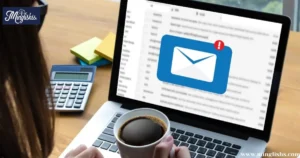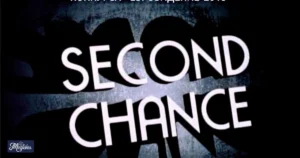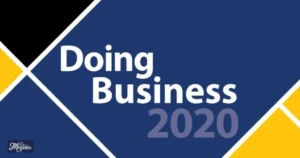“Enhance Your Professional Communication: Formal Alternatives to ‘Talk to You Soon’.”
Effective communication is crucial in maintaining professional relationships and ensuring clarity in correspondence. One common phrase used to end conversations or emails is “talk to you soon.” While this phrase is friendly and informal, it may not always be appropriate in a formal context. In professional settings, choosing the right closing can make a significant difference in how your message is perceived.
Whether you’re drafting a business email, concluding a formal meeting, or wrapping up a professional conversation, using formal alternatives can enhance your professionalism. By selecting phrases that align with the tone and context of your communication, you ensure that your message is conveyed with the appropriate level of respect and formality.
In this blog, we will explore various formal ways to say “talk to you soon.” Each alternative will be presented with a practical scenario, a brief explanation, and additional tips to help you use these expressions effectively. By understanding and applying these formal alternatives, you can refine your professional communication and leave a positive impression.
25 Formal Ways to Say “Talk to You Soon”
1. “I look forward to our next conversation”
Scenario: Ending a formal business email.
Subject Explanation: This phrase indicates that you are anticipating further discussion and conveys a sense of eagerness for the next interaction.
Additional Tip: Use this phrase when you want to express interest in continuing the dialogue while maintaining a professional tone.
2. “I anticipate speaking with you shortly”
Scenario: Concluding a conference call.
Subject Explanation: This formal expression suggests that you expect to have another conversation in the near future. It maintains a professional tone while setting the expectation for follow-up.
Additional Tip: Suitable for formal meetings where a clear timeline for future interactions is established.
3. “I am eager to reconnect”
Scenario: Wrapping up a formal networking event.
Subject Explanation: This phrase conveys a professional enthusiasm for future communication, emphasizing your interest in continuing the relationship.
Additional Tip: Use this when you want to express genuine interest in maintaining professional connections.
4. “I look forward to continuing our discussion”

Scenario: Ending an email after a strategy meeting.
Subject Explanation: This phrase highlights your anticipation of further dialogue and shows that you value the ongoing conversation.
Additional Tip: Effective for situations where further discussion is expected or planned.
5. “I am looking forward to our future correspondence”
Scenario: Closing a formal letter to a client.
Subject Explanation: This formal closing indicates that you are anticipating continued communication and emphasizes your commitment to ongoing interaction.
Additional Tip: Ideal for written correspondence where maintaining a professional tone is important.
6. “I hope to speak with you soon”
Scenario: Concluding a follow-up email after a job interview.
Subject Explanation: This polite expression conveys a hopeful expectation for future contact, suitable for both formal and semi-formal contexts.
Additional Tip: Use this phrase when you want to express optimism about future communication.
7. “I will be in touch shortly”
Scenario: Ending a project update email.
Subject Explanation: This phrase indicates that you will contact the recipient soon, maintaining a professional and courteous tone.
Additional Tip: Suitable for situations where you need to reassure the recipient of forthcoming communication.
8. “I am looking forward to our next meeting”
Scenario: Wrapping up a formal meeting with a business partner.
Subject Explanation: This phrase expresses anticipation for the next scheduled meeting, demonstrating commitment and professionalism.
Additional Tip: Use this when you have a scheduled follow-up meeting or discussion.
9. “I will connect with you soon”
Scenario: Ending a formal email to a colleague.
Subject Explanation: This expression suggests that you will be in contact again soon, ensuring the recipient knows that further communication is expected.
Additional Tip: Effective for maintaining communication flow in professional settings.
10. “I am eager to discuss further”
Scenario: Concluding a proposal email.
Subject Explanation: This phrase conveys enthusiasm for continuing the discussion and signals that you are looking forward to further engagement.
Additional Tip: Use this when you want to emphasize your interest in continuing the conversation.
Other Ways to Say “Sorry to Keep You Waiting” in an Email
11. “I await our next exchange”
Scenario: Ending a formal letter to a business associate.
Subject Explanation: This formal phrase indicates that you are anticipating the next exchange of communication, showing patience and professionalism.
Additional Tip: Suitable for formal correspondence where maintaining a professional tone is key.
12. “I look forward to hearing from you”
Scenario: Wrapping up an inquiry email.
Subject Explanation: This polite closing expresses anticipation for the recipient’s response, suitable for various formal communication contexts.
Additional Tip: Use this when you expect a reply and want to keep the tone courteous.
13. “I am looking forward to your response”
Scenario: Ending a formal request email.
Subject Explanation: This phrase indicates that you are awaiting the recipient’s reply and emphasizes your anticipation for further communication.
Additional Tip: Effective for formal requests or queries where a response is expected.
14. “I am keen to continue our dialogue”
Scenario: Wrapping up a discussion on a business proposal.
Subject Explanation: This formal phrase shows a strong interest in ongoing conversation and demonstrates commitment to continued engagement.
Additional Tip: Use this to convey eagerness for further discussion in formal settings.
15. “I will be in contact soon”
Scenario: Ending a formal project update.
Subject Explanation: This phrase reassures the recipient that you will follow up shortly, maintaining a professional tone and ensuring clarity.
Additional Tip: Suitable for situations where follow-up is necessary and expected.
16. “I look forward to our forthcoming discussion”
Scenario: Concluding a letter of introduction.
Subject Explanation: This phrase anticipates future conversation and indicates that you are eager for the next interaction.
Additional Tip: Effective for formal introductions and initial communications.
17. “I anticipate our next conversation”
Scenario: Ending an email after a collaborative meeting.
Subject Explanation: This phrase shows that you are expecting and looking forward to further discussion, emphasizing a professional tone.
Additional Tip: Use this when you want to highlight the importance of future conversations.
18. “I am looking forward to your feedback”
Scenario: Wrapping up a request for input on a draft document.
Subject Explanation: This phrase conveys anticipation for the recipient’s feedback and maintains a formal and respectful tone.
Additional Tip: Ideal for situations where feedback is awaited and valued.
19. “I hope to reconnect soon”
Scenario: Ending a formal thank-you note.
Subject Explanation: This polite expression shows that you hope for future contact while maintaining a courteous tone.
Additional Tip: Use this in formal thank-you notes or appreciation letters.
20. “I am eager to follow up”

Scenario: Concluding an initial proposal email.
Subject Explanation: This phrase conveys a sense of urgency and enthusiasm for continuing the discussion or following up.
Additional Tip: Effective for situations where prompt follow-up is expected.
21. “I am looking forward to our next exchange”
Scenario: Ending a formal business letter.
Subject Explanation: This formal phrase expresses anticipation for the next communication, maintaining professionalism and clarity.
Additional Tip: Suitable for formal business correspondence where ongoing communication is planned.
22. “I await further communication”
Scenario: Concluding a detailed project report.
Subject Explanation: This phrase indicates that you are waiting for additional communication, ensuring that the recipient knows you expect further engagement.
Additional Tip: Use this in formal documents or reports where follow-up is necessary.
23. “I look forward to future interactions”
Scenario: Ending a formal email to a potential client.
Subject Explanation: This phrase conveys a positive outlook on future engagements and maintains a professional tone.
Additional Tip: Ideal for initial communications with potential clients or partners.
24. “I am anticipating our next discussion”
Scenario: Wrapping up a formal meeting summary email.
Subject Explanation: This phrase expresses that you are eagerly awaiting the next discussion, reinforcing your commitment to the ongoing conversation.
Additional Tip: Use this to highlight the importance of future discussions in formal settings.
25. “I am looking forward to hearing from you soon”
Scenario: Ending a formal inquiry about a business opportunity.
Subject Explanation: This polite closing expresses anticipation for a response while maintaining a formal tone.
Additional Tip: Effective for formal inquiries where a prompt response is expected.
Additional Tips and Insights
Tips for Effective Communication:
- Match the Tone: Choose an expression that aligns with the formality of your communication. Ensure that your closing phrase matches the tone of your message.
- Provide Context: When using formal phrases, provide sufficient context or follow-up instructions to ensure clarity and avoid misunderstandings.
- Be Professional: Maintain a professional tone throughout your communication to reinforce respect and courtesy.
- Follow Up Promptly: If you have indicated that you will be in touch soon, ensure that you follow up in a timely manner to maintain credibility and professionalism.
Pros and Cons
Pros
- Enhanced Professionalism: Using formal alternatives demonstrates respect and maintains a high standard of communication.
- Clear Expectations: Formal phrases can set clear expectations for future interactions and follow-up.
- Positive Impression: Professional closings can leave a positive impression on colleagues, clients, and business partners.
Cons
- Potential Overuse: Overusing formal phrases might come across as insincere or overly rigid in some contexts.
- Context Sensitivity: Choosing the wrong level of formality can impact the effectiveness of your communication.
Conclusion
Selecting the right formal phrase to say “talk to you soon” can significantly impact the effectiveness of your professional communication. By using these alternatives, you demonstrate respect, maintain professionalism, and set clear expectations for future interactions.
Whether in business correspondence, meetings, or formal conversations, these phrases will help you convey your message with the appropriate level of formality. Remember to choose the phrase that best suits the context and always aim for clarity and courtesy in your communication.

Hi, I’m Ethan Matthews: I make English easy with my clear and simple teaching style. I love helping learners feel confident in every lesson.










